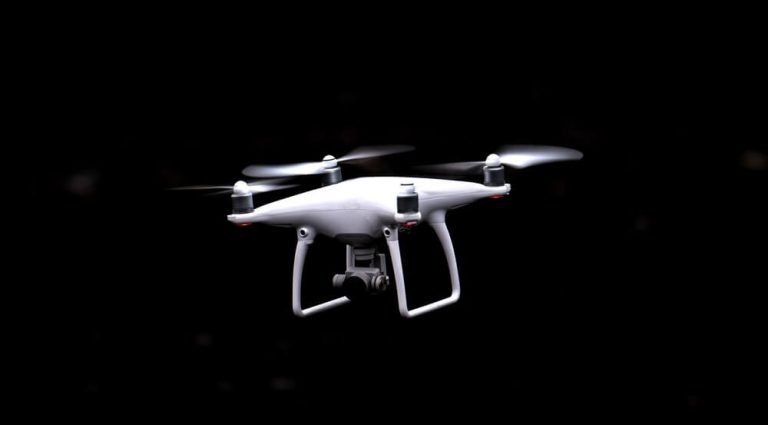The FAA Announces Changes for Recreational Done Operators

In a move that could have larger implications for the global drone community, the FAA (Federal Aviation Administration) has implemented changes for recreational drone flyers, as mandated by congress in the FAA Reauthorization Act of 2018.
Whether these changes will affect how aviation authorities in the GCC region – or anywhere else around the globe – act remains to be seen. However, is it unreasonable to assume that authorities won’t follow-suit and consider their current legislation around drones?
Currently, the USA is the only country to have launched fundamental changes affecting amateur pilots however, depending on a variety of considerations and in an effort to make airspace safer, novice drone pilots of limited experience will only be permitted to fly at set altitudes and be subject to stringent restrictions.
Are you an amateur pilot with a passion for Dubai aerial photography? Perhaps the thrill of controlling a drone is enough to propel you to take flight at every given opportunity? If this sounds like you, it may be worth reading on to discover the changes that the USA has enforced – you never know, it might not be too long before the Dubai Civil Aviation Authority makes legislative changes that affect you.
What the FAA Reorganization Act Says
According to the FAA, although non-commercial drone operators may continue to fly below 400 feet in uncontrolled airspace without specific certification or operating authority from the FAA, new legislation means that they are now required to obtain prior authorization from the FAA before flying in controlled airspace and around airports.
Given the spate of drone incursion into restricted airspace in the USA, Dubai, and around the world, this new legislation hardly comes as a surprise. Designed to protect the safety of restricted airspace or airspace with a high volume of air traffic, it seems only logical that legislation is passed to prevent accidents.
What This Means for Drone Pilots
In short, drone pilots should be increasingly mindful of where they can and cannot fly. Professional drone shooting services in Dubai, like Sky Vision, fully understand airspace restrictions and the importance of adhering to all legislation, however amateur drone pilots may not possess such intimate knowledge of their legal obligations.
The FAA has now categorically stated that all drone pilots must comply with all airspace restrictions and prohibitions when flying in controlled and uncontrolled airspace. Prior to taking flight and heading into controlled airspace, drone pilots must obtain airspace authorization. Prior to this, drone pilots in the US were only required to notify an air traffic controller when they were within five miles of an airport.
In the GCC, the Dubai Civil Aviation Authority (GCAA) forbid drones from flying near, around and over airports. In addition, to protect citizens privacy, federal and municipal authorities do not permit drones to fly over residential areas to protect people’s privacy. As any astute and experienced business that provides drone shooting services in Dubai, like Sky Vision, knows understanding where pilots can fly is essential to responsible drone ownership.
How Air Traffic Controllers Will React
The new legislation means that until further notice, air traffic controllers will no longer accept requests to operate recreational drones in controlled airspace on a situation-by-situation basis. Should such an incursion occur, the air traffic controller will immediately report the incident and the pilot may be liable for prosecution.
The FAA will enable operations under the congressionally mandated exception for limited recreational drones. Moreover, in order to make a clearly defined airspace that drone, and aircraft pilots know is accessible to them, temporary authorizations to fly in ‘fixed sites’ will be granted. These fixed sites will be routinely updated and can be found online.
NASA is currently hard at work perfecting a research platform that will help manage drones flying at low altitudes alongside other airspace users. Known as UAS Traffic Management or UTM, their goal is to create a system that will allow drones to be successfully integrated into airspace without relying on air traffic controllers spotting drones on their airspace.
Alongside drone technological development, such as enhanced drone shooting services in Dubai – and around the world – this is clear evidence of global research aiming to solve potential problems and pave the way for an airspace dominated by drones on the coming years.
Further Training and Flight Requirements
Yet another provision in the reauthorization act requires pilots to pass an aeronautical knowledge and safety test. All documentation must be kept and pilots willing to demonstrate that they have passed the test upon instructed to by the FAA or law enforcement.
Recreational drone pilots will still be required to register their drones, fly within a visual line of sight, avoid other aircraft and take responsibility for complying with all FAA airspace and restrictions.
Like pilots determined to capture sumptuous shots with their Dubai aerial photography, flying a drone carelessly can result in enforcement action being taken. Drone technology can open a wealth of majestic possibilities – but only for qualified and experienced pilots who understand their legal responsibilities.
Will the FAA’s latest announcement addressing the evolution of drone pilots have a knock-on effect that will be felt in Dubai? It remains to be seen. However, let’s not forget that the GCAA already has very clear guidance for what drone pilots are legally responsible for. What, however, the announcement does indicate is that the presence of drones and their visibility in our lives looks set to continue to soar globally in the coming months and years.